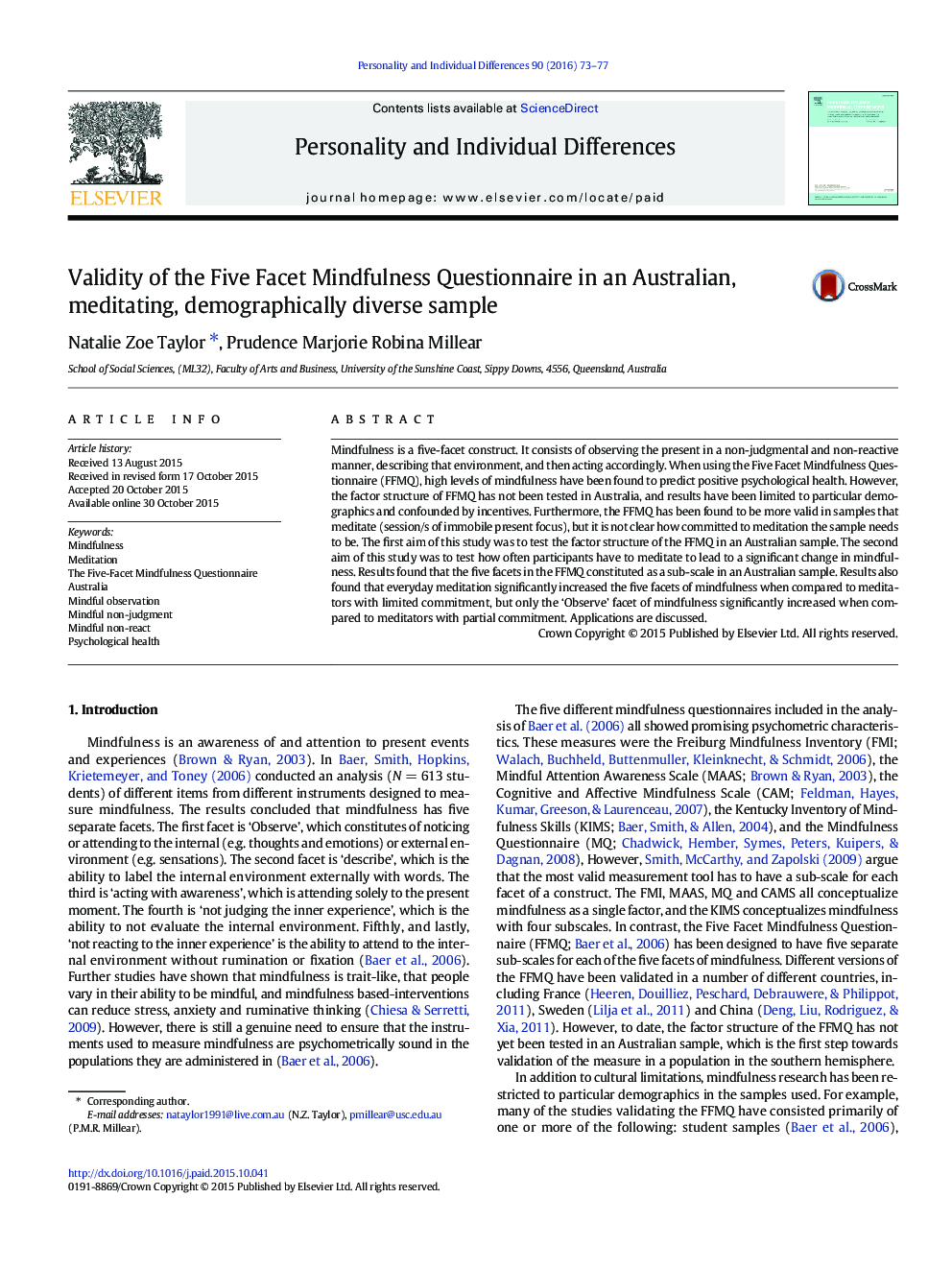| Article ID | Journal | Published Year | Pages | File Type |
|---|---|---|---|---|
| 889830 | Personality and Individual Differences | 2016 | 5 Pages |
•The study tested if the Five Facet Mindfulness Questionnaire was valid in an Australian sample.•The study investigated how meditation affected mindfulness.•A large, demographically diverse, incentive free sample completed an online survey.•The FFFQ was valid in an Australian sample.•‘Observe’ had a significant positive relationship to meditation, but not ‘Non-Judge’.
Mindfulness is a five-facet construct. It consists of observing the present in a non-judgmental and non-reactive manner, describing that environment, and then acting accordingly. When using the Five Facet Mindfulness Questionnaire (FFMQ), high levels of mindfulness have been found to predict positive psychological health. However, the factor structure of FFMQ has not been tested in Australia, and results have been limited to particular demographics and confounded by incentives. Furthermore, the FFMQ has been found to be more valid in samples that meditate (session/s of immobile present focus), but it is not clear how committed to meditation the sample needs to be. The first aim of this study was to test the factor structure of the FFMQ in an Australian sample. The second aim of this study was to test how often participants have to meditate to lead to a significant change in mindfulness. Results found that the five facets in the FFMQ constituted as a sub-scale in an Australian sample. Results also found that everyday meditation significantly increased the five facets of mindfulness when compared to meditators with limited commitment, but only the ‘Observe’ facet of mindfulness significantly increased when compared to meditators with partial commitment. Applications are discussed.
